In Ohio, the ScottsMiracle-Gro company revoked the employment of a new hire when he tested positive for nicotine in his system. (The company had a "no smoking" policy that applied equally to off hours.) In Pennsylvania, AmeriGas threatened to stop offering health insurance coverage for its employees unless they participated in the company wellness program.
Across the country, employers who are fed up with rising healthcare costs – and not seeing enough impact from voluntary wellness programs – are getting more aggressive about requiring participation in their wellness initiatives.
But is it a safe practice to make worksite wellness participation mandatory? The companies that have attempted it have often run into legal challenges. Yet many corporate CEOs still feel convinced it is justifiable and the only way to significantly impact ballooning healthcare costs. In fact, a survey by the National Business Group on Health revealed that twice as many employers are opting to use negative incentives this year than in the past – 19% in 2011 compared to just 8% of employers in 2009. And nearly 40% of the companies surveyed plan to use penalties next year.
If requiring participation in your program feels like the only way to get participation rates up to the desired level, make sure you abide by state and federal laws to avoid violations and potential lawsuits. Both ScottsMiracle-Gro and AmeriGas worked closely with legal counsel to make their wellness programs mandatory and remain in compliance with applicable laws.
The following federal laws and corresponding regulations provide specific guidelines and limitations regarding mandatory wellness programs, incentives, and what kind of personal information you can ask for and how it can be used:
- The Health Insurance Portability and Accountability Act (HIPAA)
- The Genetic Information Nondiscrimination Act (GINA)
- The Americans With Disabilities Act (ADA)
Employers must also pay attention to their state privacy and discrimination laws. For example, up to half of all states have laws that protect employees who engage in legal, yet unhealthful activities off the clock.
"If your business is located in one of these states, you may be prohibited from requiring employees to abstain from smoking outside of work," cautions Heather Tourville, Chief Operating Officer and General Counsel for Wellsource, Inc.
Inconsistencies and gaps between applicable laws can make it confusing to determine if you can legally require employees to participate in your company wellness program. For example, the ADA prohibits "medical inquiries" of employees unless they are "job-related and connected with a business necessity."
Yet a court in Florida recently ruled that provision of the ADA does not apply to a wellness program offered by an employer health plan where the program meets the ADA's safe harbor for bona fide benefits plans.
In Seff v. Broward County (S.D. Fla. Apr. 11, 2011), employees were docked $20 per paycheck for failing to participate in the county's wellness program. However, the court concluded an employer health plan does not violate the ADA by asking its employees to submit to a health screening in an effort to improve their health. In essence, the ruling supports the idea that even an "involuntary" medical inquiry (one where a penalty is applied to nonparticipants) is permitted if it is part of a bona fide benefit plan.
In contrast, a 2009 informal letter issued by the Equal Employment Opportunity Commission (EEOC), the agency responsible for enforcing the ADA, opined that making health risk assessments a prerequisite for health coverage would violate the ADA. Although the agency confirmed that certain voluntary wellness programs are permissible under the disability law, it failed to specifically address the ADA's safe harbor provisions. The EEOC has also gone on record as saying that simply because a wellness program complies with HIPAA does not mean it earns a free pass under the ADA.
So clearly, not all ADA-related issues have been resolved with respect to wellness programs. Different facts in the Broward County case could have caused a different result. For instance, it is unclear which side the court would have sided with had the following factors come into play:
- If the employer had access to the confidential medical information submitted by employees. (In the above case, only the insurance carrier did.)
- If the penalty had been withholding insurance coverage for nonparticipating employees rather than simply charging them more.
- If the county based the penalty on achieving a specific health standard rather than participation.
- If the lawsuit had been brought in a state that protects employees' rights to use lawful substances off hours.
"Companies still need to tread carefully in requiring participation in their corporate wellness programs," Tourville says. If you want to make participation in your wellness program mandatory, check with your legal counsel first. "While certain public employers – such as the military and even private sector employers whose industries require an annual health evaluation – may readily be able to require participation, it is not so clear in other contexts."
Certainly, if you are allowed by law to require participation at your worksite, we recommend simply making the assessment part of the employee's annual health exam.
But even if you can require participation, there are still plenty of health educators who feel it's better for employees to participate voluntarily.
"Don't promote programs as mandatory except as a last resort," advises Dr. Don Hall, founder and chairman of Wellsource, Inc. "When participants decide to make healthy lifestyle changes on their own, they are more likely to be committed to making real changes."
Despite differing opinions over whether positive reinforcements or negative incentives are more effective, everyone agrees that it's good business to have a healthy population. So find what works best for you to reach your participation goals, and be careful to work within legal limitations.






